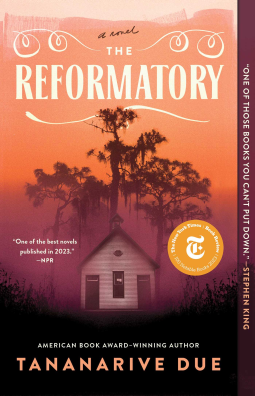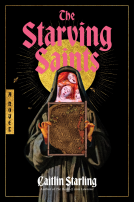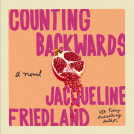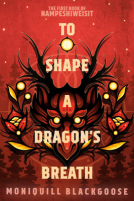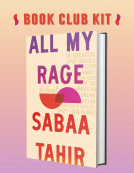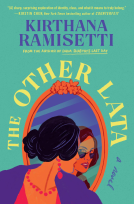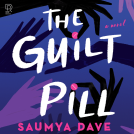The Reformatory
A Novel
by Tananarive Due
You must sign in to see if this title is available for request. Sign In or Register Now
Send NetGalley books directly to your Kindle or Kindle app
1
To read on a Kindle or Kindle app, please add kindle@netgalley.com as an approved email address to receive files in your Amazon account. Click here for step-by-step instructions.
2
Also find your Kindle email address within your Amazon account, and enter it here.
Pub Date Jan 07 2025 | Archive Date Not set
Saga Press | S&S/Saga Press
Talking about this book? Use #TheReformatory #NetGalley. More hashtag tips!
Description
*Los Angeles Times Book Prize Winner * New York Times Notable Book * Locus Award Finalist * Winner of the Bram Stoker Award and the Shirley Jackson Award *
“You’re in for a treat...one of those books you can’t put down...Due hit it out of the park.” —Stephen King
A gripping, page-turning “masterpiece” (Joe Hill, #1 New York Times bestselling author of The Fireman) set in Jim Crow Florida that follows Robert Stephens Jr. as he’s sent to a segregated reform school that is a chamber of terrors where he sees the horrors of racism and injustice, for the living, and the dead.
Gracetown, Florida.
June 1950.
Twelve-year-old Robbie Stephens Jr. is sentenced to six months at the Gracetown School for Boys, a reformatory, for kicking the son of the largest landowner in town in defense of his older sister, Gloria. So begins Robbie’s journey further into the terrors of the Jim Crow South and the very real horror of the school they call The Reformatory.
Robbie has a talent for seeing ghosts, or haints. But what was once a comfort to him after the loss of his mother has become a window to the truth of what happens at the reformatory. Boys forced to work to remediate their so-called crimes have gone missing, but the haints Robbie sees hint at worse things. Through his friends Redbone and Blue, Robbie is learning not just the rules, but how to survive. Meanwhile, Gloria is rallying every family member and connection in Florida to find a way to get Robbie out before it’s too late.
The Reformatory is a “hallucinatory, haunting, terrifying, and moving” (S.A. Cosby, bestselling author of All the Sinners Bleed) work of historical fiction written as only American Book Award–winning author Tananarive Due could, by piecing together the life of the relative her family never spoke of and bringing his tragedy and those of so many others at the infamous Dozier School for Boys to the light in this riveting novel.
“You’re in for a treat...one of those books you can’t put down...Due hit it out of the park.” —Stephen King
A gripping, page-turning “masterpiece” (Joe Hill, #1 New York Times bestselling author of The Fireman) set in Jim Crow Florida that follows Robert Stephens Jr. as he’s sent to a segregated reform school that is a chamber of terrors where he sees the horrors of racism and injustice, for the living, and the dead.
Gracetown, Florida.
June 1950.
Twelve-year-old Robbie Stephens Jr. is sentenced to six months at the Gracetown School for Boys, a reformatory, for kicking the son of the largest landowner in town in defense of his older sister, Gloria. So begins Robbie’s journey further into the terrors of the Jim Crow South and the very real horror of the school they call The Reformatory.
Robbie has a talent for seeing ghosts, or haints. But what was once a comfort to him after the loss of his mother has become a window to the truth of what happens at the reformatory. Boys forced to work to remediate their so-called crimes have gone missing, but the haints Robbie sees hint at worse things. Through his friends Redbone and Blue, Robbie is learning not just the rules, but how to survive. Meanwhile, Gloria is rallying every family member and connection in Florida to find a way to get Robbie out before it’s too late.
The Reformatory is a “hallucinatory, haunting, terrifying, and moving” (S.A. Cosby, bestselling author of All the Sinners Bleed) work of historical fiction written as only American Book Award–winning author Tananarive Due could, by piecing together the life of the relative her family never spoke of and bringing his tragedy and those of so many others at the infamous Dozier School for Boys to the light in this riveting novel.
Available Editions
| EDITION | Other Format |
| ISBN | 9781982188351 |
| PRICE | $19.99 (USD) |
| PAGES | 576 |
Available on NetGalley
NetGalley Reader (EPUB)
NetGalley Shelf App (EPUB)
Send to Kindle (EPUB)
Download (EPUB)
Readers who liked this book also liked:
The Poppy Fields (Deluxe Limited Edition)
Nikki Erlick
General Fiction (Adult), Sci Fi & Fantasy, Women's Fiction
Nikki Erlick
General Fiction (Adult), Sci Fi & Fantasy, Women's Fiction
Book Club Kit: The Rumor Game by Dhonielle Clayton and Sona Charaipotra
We Are Bookish
Multicultural Interest, Mystery & Thrillers, Teens & YA
We Are Bookish
Multicultural Interest, Mystery & Thrillers, Teens & YA
Book Club Kit: All My Rage by Sabaa Tahir
We Are Bookish
Multicultural Interest, OwnVoices, Teens & YA
We Are Bookish
Multicultural Interest, OwnVoices, Teens & YA
Book Club Kit: The Nightmare Before Kissmas by Sara Raasch
We Are Bookish
LGBTQIAP+, Romance, Sci Fi & Fantasy
We Are Bookish
LGBTQIAP+, Romance, Sci Fi & Fantasy
